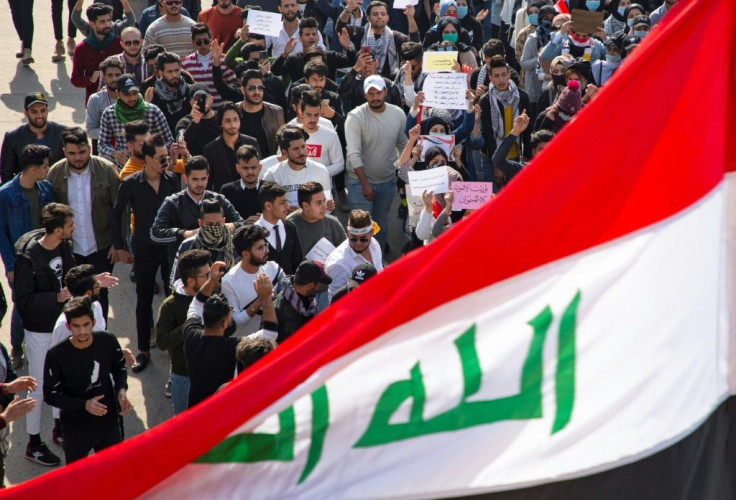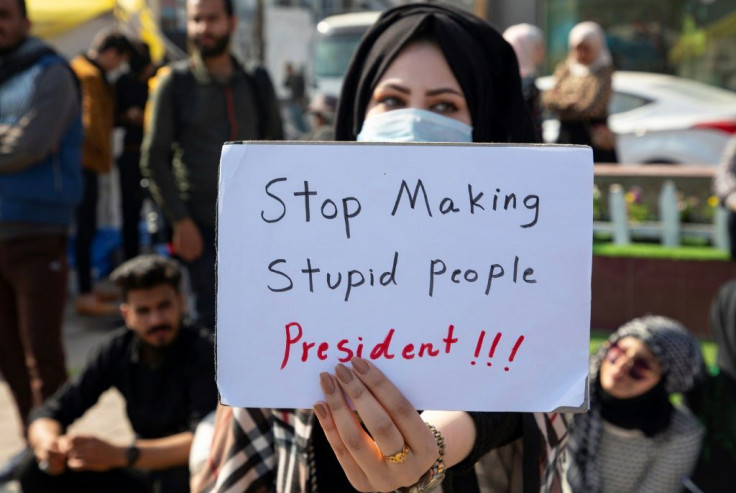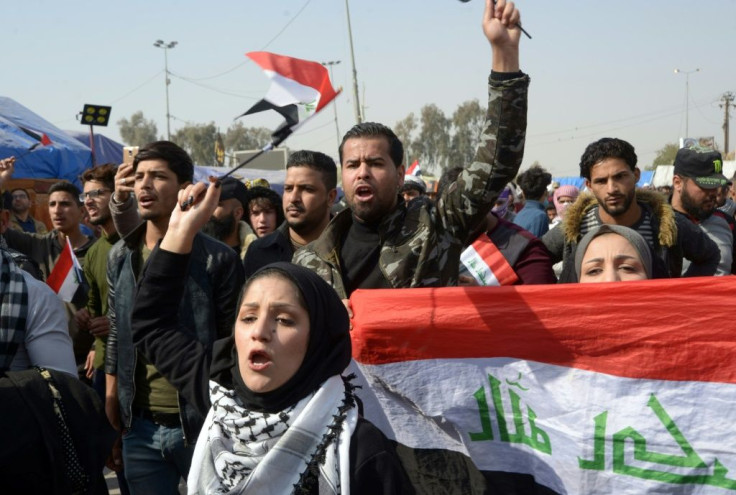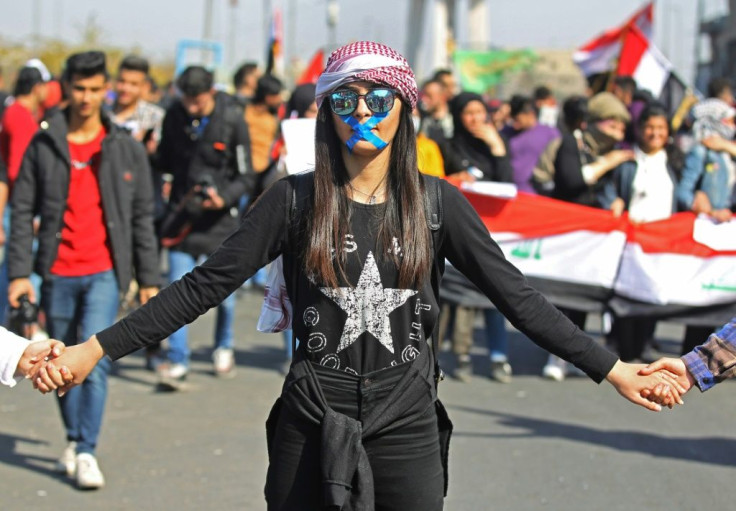In Iraq, Protesters In Last Stand Against A Former Ally

They once stood side by side against tear gas and bullets, protesting together against Iraq's government. But after cleric Moqtada Sadr's followers switched sides, young activists feel vulnerable and betrayed.
"We used to distribute food to their protest tents in the first days of the demonstrations -- and this is how they treat us?" said Mona, a medic and activist in Baghdad.
"I said from the very first days they'd abandon us."
The diminutive Iraqi woman was referring to Sadr's surprising endorsement of Mohammad Allawi as Iraq's new premier, a man the core protest movement rejects as too close to the ruling class they have spent months seeking to overthrow.
The cleric's diehard supporters quickly turned on the other protesters, and clashes in the holy city of Najaf and nearby Hilla have left eight dead this week alone.
In Baghdad's Tahrir Square, Sadr supporters -- usually identified by blue caps -- have beaten anti-government demonstrators with sticks and threatened others.
Clusters of glowering men in blue caps guard the entrances to the now-empty "Turkish Restaurant," the gutted building protesters had turned into their bustling headquarters.
Sadrists ousted demonstrators from the building's 15 floors last week and tore down commemorative posters of those killed while protesting.

"It's a totally different situation in Tahrir now," said Mona, who just a month ago could be seen in the square every day, delivering food to keep the sit-in going and treating teens shot by riot police at makeshift clinics.
No more. Mona comes to Tahrir every three or four days and looks over her shoulder even though she speaks quietly, worried a diehard Sadr supporter might hear her criticism.

It was an odd alliance from the start: politically unaffiliated demonstrators partnered with followers of Sadr, who had inherited a socioreligious current from his father, also a cleric.
That movement has thrived during protests and it has frequently slammed the ruling elite.
When anti-government protests erupted in October, Sadrists organised round-the-clock shifts to make sure Tahrir would stay occupied and brought food, mattresses and other logistical necessaries to the square, activists said.
They also helped in a less visible way.
Sadr controls parliament's largest bloc and key ministry posts, and his backing gave the protests a degree of political cover that mostly precluded a full-on crackdown.

Some activists felt uneasy about making such a deal with the devil until a bloody night in December saw them reluctantly accept Sadr's support.
That month, unidentified gunmen attacked a protest site near Tahrir, killing 20 demonstrators, but Sadrists armed with daggers fought back, activists who were there at the time said.
"Look, I know it's crazy but I had to thank them for the stand they took there," said Hakim, a longtime protester who is deeply opposed to Sadr.
"It really did save us."
But Sadr's recent flip-flopping has confused them. A week before endorsing Allawi, he held his own rally -- to demand US troops leave Iraq -- and said he would no longer back the anti-government protests.
A few days later, he switched again, tweeting to his supporters to flood the main squares before then instructing them to help Iraqi security forces reopen schools and roads shut by months of sit-ins.
"A tweet they come, a tweet they go," muttered Mona.
At a recent student rally in Baghdad, a young demonstrator held up a sign reading, "For God's sake, what do you want?"
Protesters, including a burly Iraqi named Ali, said Sadrists in recent days have stomped around Tahrir with bats to threaten protesters chanting against Allawi.
Ali dipped into a blue tent where he and his university classmates have been sleeping for months.
"We were okay with the Sadrists before because they didn't intervene in our protests. Now it's different," Mohammad, one of the students, told AFP.
"We're doing night shifts now around the tent to make sure no one attacks us," he added.
Just behind their tent is the Tahrir parking garage -- the Sadrists' main gathering place. To the left and right of their tent are tarp structures put up by Sadr followers.
"We're surrounded on all sides," said Mustafa, a history student who has skipped class since October so as to take part in the protests.
"We've got the government, the political parties and now we have the Sadrists" to contend with.
© Copyright AFP 2024. All rights reserved.





















